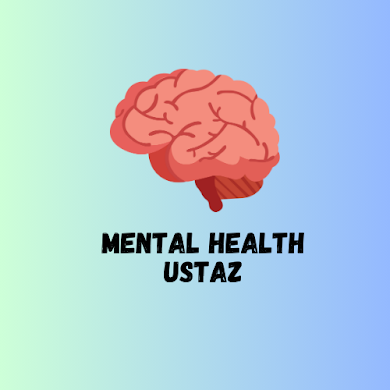Introduction: "What is Bipolar Disorder? Bipolar Disorder, formerly known as Manic Depression, is a complex and highly prevalent mood disorder that affects millions of individuals worldwide. In this extensive guide, we will delve into the details of Bipolar Disorder, its various types, symptoms, causes, and treatment options, while offering crucial insights and support for those affected by this condition."
Step 1: What is Bipolar Disorder?
Bipolar Disorder is characterized by extreme and erratic mood swings, going beyond the typical ups and downs that we all experience in daily life. These mood swings include periods of intense mania and severe depression, often interfering with an individual's ability to function effectively. There are three primary types of Bipolar Disorder:
1. **Bipolar I Disorder**: Individuals with Bipolar I experience at least one manic episode, which involves elevated or irritable mood, increased energy, and heightened activity. Some may also experience depressive episodes.
2. **Bipolar II Disorder**: Bipolar II is marked by recurrent depressive episodes and at least one hypomanic episode, which is a less severe form of mania.
3. **Cyclothymic Disorder**: Cyclothymic Disorder is characterized by numerous periods of hypomanic symptoms and depressive symptoms over at least two years. These symptoms do not reach the threshold for full-blown mania or depression but can be disruptive.
Bipolar Disorder has a significant impact on individuals' daily lives, relationships, and ability to manage day-to-day tasks.
Step 2: Causes and Triggers
While the exact cause of Bipolar Disorder remains a topic of ongoing research, it is widely believed to be influenced by a combination of genetic, biological, and environmental factors. Some potential triggers and risk factors include:
- **Genetics**: A family history of Bipolar Disorder can increase an individual's risk of developing the condition.
- **Brain Structure**: Studies have shown structural differences in the brains of individuals with Bipolar Disorder, particularly in areas related to mood regulation.
- **Neurotransmitters**: Imbalances in brain chemicals, such as serotonin and dopamine, can contribute to mood disorders like Bipolar Disorder.
- **Stressful Life Events**: Traumatic experiences or significant life changes, such as the loss of a loved one, can trigger episodes in individuals with a genetic predisposition.
- **Substance Abuse**: Substance abuse, including drug or alcohol abuse, can worsen the symptoms and progression of Bipolar Disorder.
Symptoms
The symptoms of Bipolar Disorder can vary widely and are categorized into two main mood episodes:
- **Manic Episode Symptoms**:
- Excessive energy and activity
- Elevated mood or irritability
- Decreased need for sleep
- Impulsive and risky behavior
- Racing thoughts and rapid speech
- **Depressive Episode Symptoms**:
- Persistent sadness or anxiety
- Changes in sleep patterns and appetite
- Fatigue and loss of energy
- Feelings of hopelessness or worthlessness
- Difficulty concentrating and making decisions
The severity and duration of these symptoms can vary from person to person and even from one episode to the next.
Treatment
Bipolar Disorder is a treatable condition, and various options are available to help individuals manage their symptoms. It is essential to consult with a mental health professional for a proper diagnosis and a personalized treatment plan. Common treatment approaches include:
- **Medications**: Mood stabilizers, antipsychotic drugs, and antidepressants are commonly prescribed to help manage mood swings and other symptoms associated with Bipolar Disorder.
- **Therapy**: Psychotherapy is an essential part of treatment. Cognitive-behavioral therapy (CBT), interpersonal therapy, and family-focused therapy can provide coping strategies, and emotional support, and help individuals understand and manage their condition better.
- **Lifestyle Changes**: Maintaining a regular sleep schedule, avoiding alcohol and substance abuse, and reducing stress can be highly beneficial in managing the disorder.
- **Support Network**: Building a strong support system of family and friends is crucial for individuals with Bipolar Disorder. It provides emotional support and helps individuals stay on track with their treatment plans.
For more detailed information on Bipolar Disorder and to access valuable resources, consider visiting the [National Institute of Mental Health's comprehensive guide on Bipolar Disorder](https://www.nimh.nih.gov/health/topics/bipolar-disorder#:~:text=Bipolar%20disorder%20(formerly%20called%20manic,day%2Dto%2Dday%20tasks).
Conclusion
In conclusion, Bipolar Disorder is a challenging yet manageable condition that requires understanding, support, and proper treatment. Recognizing the symptoms, seeking professional help, and adhering to a tailored treatment plan can significantly improve the quality of life for individuals living with this disorder. It's crucial to raise awareness, reduce stigma, and promote a compassionate and informed approach to mental health issues, ensuring that no one faces Bipolar Disorder alone. With the right support and guidance, those affected by this condition can lead fulfilling lives and regain control over their mental well-being. For further insights and resources, you can explore the [National Institute of Mental Health's guide on Bipolar Disorder](https://www.nimh.nih.gov/health/topics/bipolar-disorder#:~:text=Bipolar%20disorder%20(formerly%20called%20manic,day%2Dto%2Dday%20tasks).
Certainly! Here are five frequently asked questions (FAQs) related to Bipolar Disorder:
**1. What are the early signs of Bipolar Disorder?**
- Early signs of Bipolar Disorder may include noticeable mood swings, difficulty concentrating, changes in sleep patterns, increased energy, and impulsive behavior. It's essential to seek professional help if you or someone you know experiences these symptoms.
**2. Can Bipolar Disorder be cured?**
- Bipolar Disorder is a lifelong condition, and there is no cure in the traditional sense. However, it can be effectively managed with the right treatment, allowing individuals to lead fulfilling lives and reduce the impact of mood episodes.
**3. How is Bipolar Disorder diagnosed?**
- Diagnosis typically involves a comprehensive assessment by a mental health professional. They will evaluate the individual's medical history, and symptoms, and may use diagnostic criteria outlined in the DSM-5 (Diagnostic and Statistical Manual of Mental Disorders) to confirm the diagnosis.
**4. Are there any natural remedies or lifestyle changes that can help manage Bipolar Disorder?**
- While natural remedies and lifestyle changes are not a substitute for professional treatment, they can complement a treatment plan. Maintaining a regular sleep schedule, managing stress, and avoiding alcohol or substance abuse are valuable in managing the disorder.
**5. Can people with Bipolar Disorder have successful careers and relationships?**
- Absolutely. With proper treatment and support, many individuals with Bipolar Disorder lead successful, productive lives, maintaining careers and meaningful relationships. It's essential to create a supportive environment and adhere to a treatment plan to achieve stability.
These FAQs provide insight into the common concerns and considerations surrounding Bipolar Disorder, but it's important to consult with a mental health professional for personalized guidance and information.
Reduce stigma, and promote a compassionate and informed approach to mental health issues, ensuring that no one faces Bipolar Disorder alone. With the right support and guidance, those affected by this condition can lead fulfilling lives and regain control over their mental well-being. For further insights and resources, you can explore the [National Institute of Mental Health's guide on Bipolar Disorder](https://www.nimh.nih.gov/health/topics/bipolar-disorder#:~:text=Bipolar%20disorder%20(formerly%20called%20manic,day%2Dto%2Dday%20tasks).




0 Comments